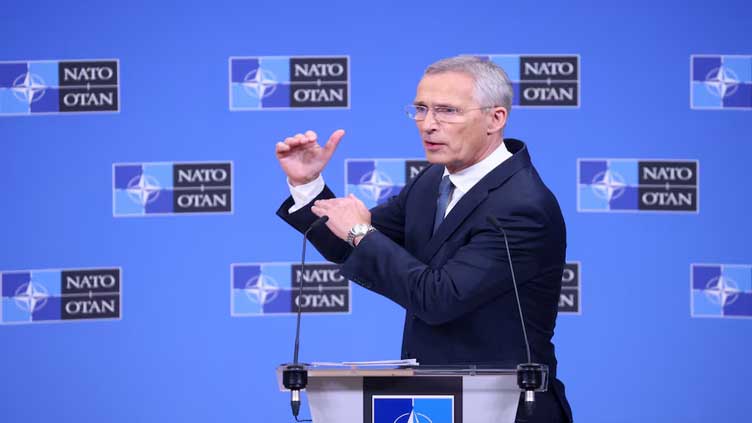NATO to take greater role coordinating military aid for Kyiv

Technology
NATO to take greater role coordinating military aid for Kyiv
BRUSSELS (Reuters) - NATO will assume a greater role in coordinating arms supplies to Ukraine, the alliance said on Friday, taking over from the United States in a bid to safeguard the process as NATO-sceptic Donald Trump bids for a second term as US president.
"These efforts do not make NATO a party to the conflict but they will enhance our support to Ukraine to uphold its right to self-defence," NATO Secretary-General Jens Stoltenberg told reporters in Brussels.
On Wednesday, Hungary gave up its resistance to the Ukraine support package NATO aims to agree on at its Washington summit in July, comprising a financial pledge and the transfer to NATO of the coordination of arms supplies and training.
During a visit by Stoltenberg to Budapest, Prime Minister Viktor Orban said his country would not block NATO decisions on providing support for Ukraine but had agreed that it would not be involved.
After Russia's full-scale invasion of Ukraine in 2022, the United States gathered like-minded nations at the Ramstein air base in Germany, establishing a group of now some 50 nations that meet regularly to match Kyiv's arms requests with pledges of donors.
This so-called Ramstein group will continue to exist as a US-led political forum but NATO will take over the military working level below that coordinates arms deliveries and training for Ukrainian troops.
The move is widely seen as an effort to provide a degree of "Trump-proofing" by putting coordination under a NATO umbrella, giving the alliance a more direct role in the war against Russia's invasion while stopping well short of committing its forces.
But diplomats acknowledge such a move may have limited effect, as the US is NATO's dominant power and provides the majority of weaponry to Ukraine. So if Washington wanted to slash Western aid to Kyiv, it would still be able to do so.
Stoltenberg has also asked allies to keep funding military aid for Ukraine at the same level as they have since 2022, adding up to some 40 billion euros ($43 billion) per year.
But with less than a month to go until the July 9-11 Washington summit, allies are still working on hammering out the details of such a pledge, trying to overcome differences over how much each country should contribute and to what extent this should be made public.
Some allies say contributions should be tied to national GDPs, similar to NATO's 2% military spending target, with a certain percentage going into military aid to Ukraine each year.
They also want contributions to be made public to encourage laggards to step up their efforts.
In the run-up to the Washington summit, allies are also still at odds over whether and how to strengthen NATO's wording on Ukraine's future membership in the alliance.
NATO's official line is that Ukraine will join the alliance one day, but not while the country is at war. "Ukraine's future is in NATO," NATO leaders declared at last year's Vilnius summit.
Some allies want this language to be strengthened, suggesting the summit declare that Ukraine's path to membership is "irreversible", according to diplomats.


